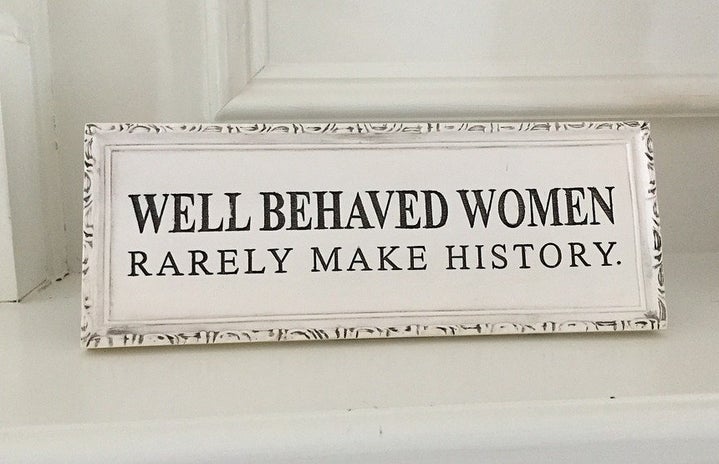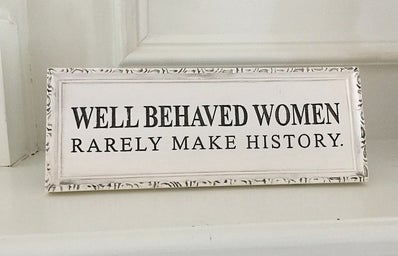When a 16-year-old me told my high school guidance counselor I wanted to be a history major, her first words were, “Hmm! May I ask… why?”
Looking back, I do not think she meant to offend me. She certainly didn’t spit on my shoes or call me foolish. For some reason, however, it still resonated with me. I still found myself on the bus that day wondering, “What am I thinking? Should I really be a history major?” This self-doubt and overall concern for the future quickly dissipated. It wasn’t like I didn’t have a plan! I wanted to teach! I love teaching! I love history! It’s a no-brainer.
It was not until recently that I truly began to unravel why I study history, and why being a historian of sorts is so important to me. In an article published by the American Historical Association, Peter N. Stearns sets out to answer the big “Why?” Just as he asserts, it is often difficult to motivate ourselves to care about past occurrences, when so much is going on around us at the present moment. It feels even more trivial, at times, to focus so much on the past when the future is circling us at every second. Perhaps it feels overwhelming to jam every tense, past, present, and future, into our thought processes. However, I would argue that history can bring us a sense of self that we may not be able to find elsewhere.
The present tends to be rather confusing, what with all the jumbled narratives and hundreds of subconscious railways, zooming around us moment by moment. The future, although exciting and attractive, is incredibly unknown and unpredictable. History, though. That is as stable as it gets.
As a historian, I have the facts. I have the dates, the important figures, the human disasters, the laughable mistakes, and the incredible victories. I can justifiably unravel what went wrong, who messed up, and I can then analyze the impact of said “thing”. History is so great because it is, indeed, a ‘thing”. It is tangible, and we can see its products in daily life. We can see the product of the history of American immigration in current day rhetoric and attitudes. We can see how major wartime moments, such as the decision to drop the atomic bomb on Hiroshima and Nagasaki, informs today’s feelings around pacifism and nuclear armament. History is, arguably, the base of our metaphorical house. All of our stability can come from the study of history, even when it feels the walls are beginning to crumble.
But, perhaps that analysis is a bit too sterile.
I have been asked, “Why are you a history major” more times than I would care to admit. Sometimes, it is honest curiosity. Sometimes, the question is posed by a fellow history nerd that is interested in my motives. Mostly, the people asking me this question do so with an air of “You must be pretty dense” in their voice.
Honestly, it has taken me a while to sort out why exactly I want to study history. I have always loved history, and have always spoken on its importance. Recently, I finally came to a conclusion.
I have a responsibility, as someone with enough privilege to be able to attend an academically rigorous university, to use my education to expand the knowledge of others. I have a responsibility, as someone who comes from a good home and a decent socioeconomic class, to protect history and the impact it can have. History is a unique subject. It can provide us a glimpse into ourselves, our beings, and our morals. For a woman, understanding the power and grit U.S. Representatives Bella Abzug and Shirley Chisholm were able to wield in the 1960s, 1970s, and beyond is important. History can show young women the incredible power they have and the strength of their voices. The past can, truly, inspire our future and our present.
We are commonly told, as history majors, that we really don’t have any career prospects, that the world does not need any more half-minded historians running around trying to predict things.
But it isn’t about that, for many of us. It isn’t about waving our fancy degrees around and saying, “Hey! I know the dates of the three major waves of the plague!” It is about the intensity of the past. It is about the beauty of the past. It is about the power we can find when we look into a mirror and realize we all have some “major historical figure” in us.


